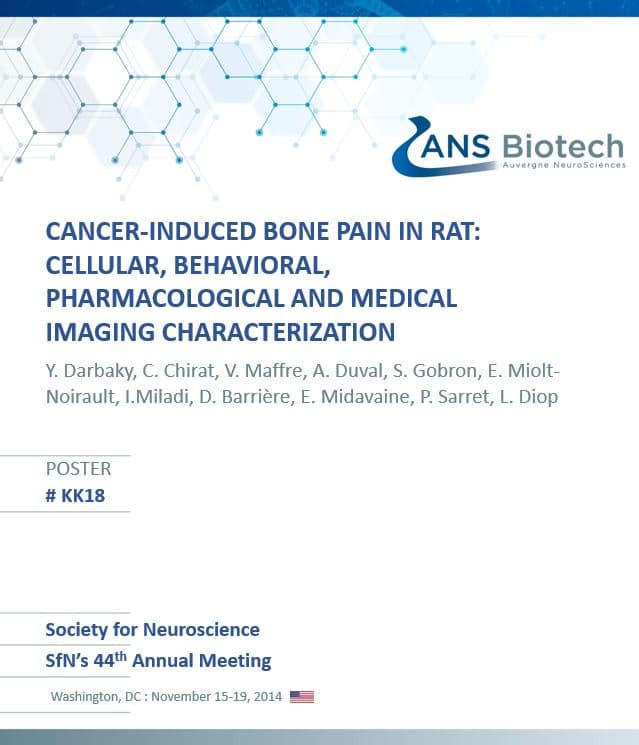
Bone is a privileged site of metastasis for primary tumors such as lung, prostate and breast. Generally, bone metastases appear with an advanced stage of malignancies and are associated with severe pain, including movement-evoked pain and spontaneous pain, and with other skeletal-related events, such as pathological fractures. The development of new antalgics effective in relieving cancer-induced bone pain requires relevant animal models of bone cancer pain for preclinical evaluation of their efficacy. Injections of syngeneic MRMT-1 rat mammary gland carcinoma cells into the bone cavity mimic the clinical pain of patients with bone metastases. The aim of this study was to characterize the MRMT-1 bone metastasis model and to validate tools used to evaluate new lead compounds on behavioral pain responses associated with medical imaging methods.
